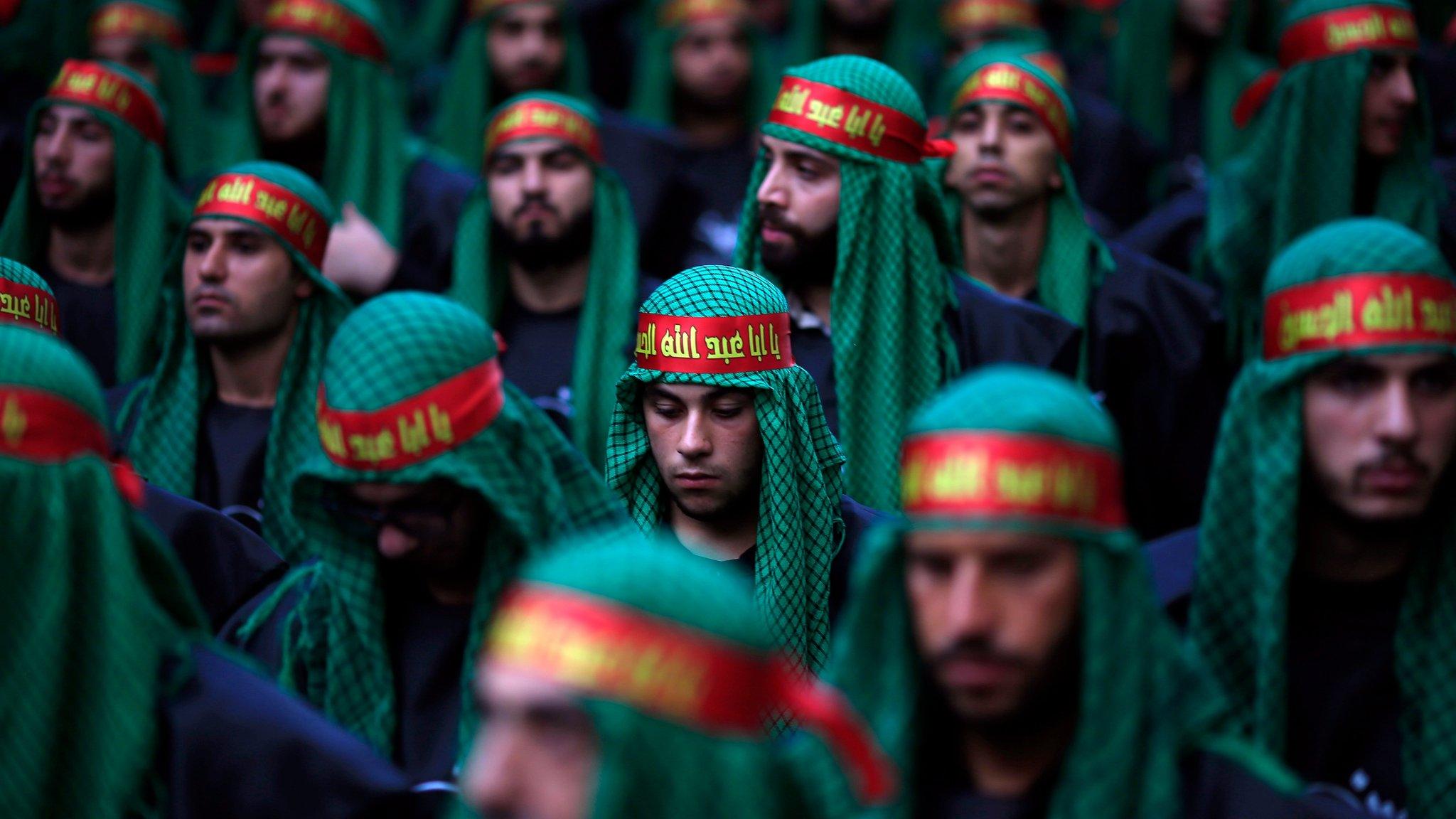Sheikh Nimr al-Nimr: Figurehead Shia cleric
- Published
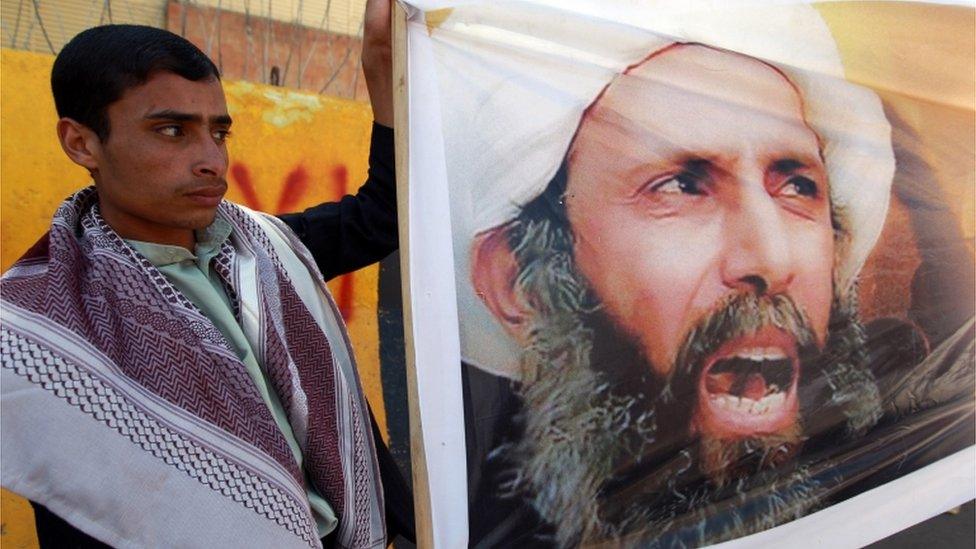
Nimr al-Nimr was popular with many Shias, particularly young ones, in the Gulf
Sheikh Nimr al-Nimr, who has been executed by Saudi Arabia, was a prominent, outspoken religious leader drawn from the country's marginalised Shia minority.
He was arrested in 2012, the year after protests broke out in oil-rich Eastern Province following the Arab Spring.
During his arrest after a car chase in the province's Qatif district he was shot four times in the leg - three people were killed in the days of protests that followed.
Nimr al-Nimr, who was in his 50s, had been a vocal supporter of the mass anti-government protests in the province, where a Shia majority have long complained of marginalisation.
He is said to have had a particularly strong following among Shia youth in Saudi Arabia - as well as in Bahrain.
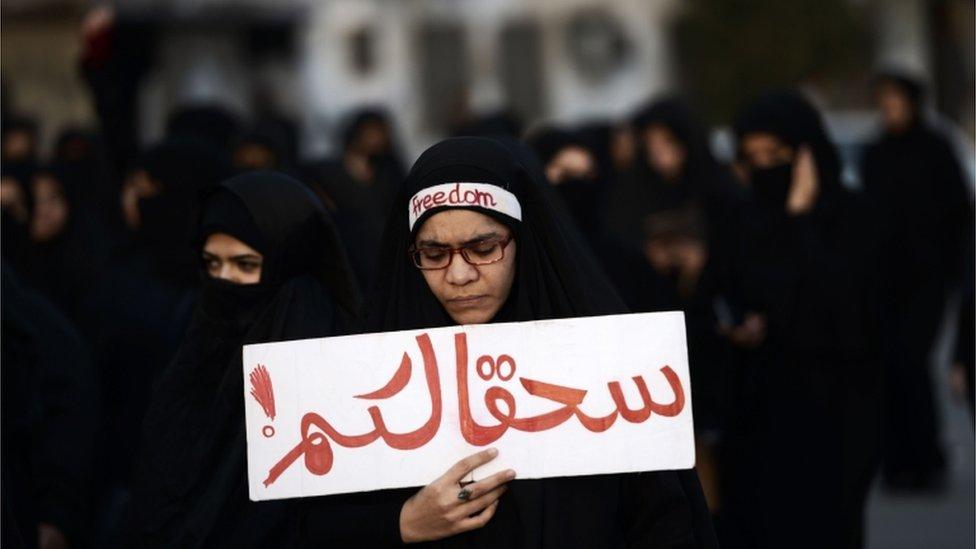
There were protests in Bahrain at the cleric's execution
He had been bitterly critical of the Sunni monarchies in both countries.
Bahrain put down protests by its majority Shia population in 2011 with the help of Saudi troops.
Over the past decade the cleric was arrested several times.
He alleged he was beaten by secret police during one spell in custody.
His death sentence was confirmed in October 2014, with his family saying he had been found guilty of, among other charges, seeking "foreign meddling" in the kingdom.
Sheikh Nimr never denied the political charges against him but his supporters say he advocated only peaceful demonstrations and eschewed violence against the government.
In 2011, he told the BBC that he supported "the roar of the word against authorities rather than weapons... the weapon of the word is stronger than bullets, because authorities will profit from a battle of weapons".
When Sheikh Nimr, who held the rank of ayatollah, went on trial in March 2013, prosecutors called for his execution by "crucifixion", a punishment which in Saudi Arabia involves beheading followed by public display of the decapitated body.
Human rights groups expressed concern at the time that he would not receive a fair trial.
They also said he had still not been given access to adequate medical care for the gunshot wounds he received during his arrest in July 2012, something denied by the authorities.
While he was in custody in 2012, his wife Muna Jabir al-Shariyavi, died in hospital in New York, which brought him much public support and sympathy, the Guardian newspaper writes, external.
Freedom calls
Born in 1959 or 1960 in a village in Qatif district in Eastern Province, Sheikh Nimr al-Nimr studied for many years in Tehran and in Syria.
He returned to Saudi Arabia in 1994 and his calls for religious freedoms soon brought him to the attention of the Saudi security services.
The cleric was briefly detained on two occasions before 2012, in 2004 and 2006, Al-Jazeera reports.
Nimr al-Nimr was by then becoming a figure of national prominence.
He met US officials in 2008, Wikileaks revealed, external, seeking to distance himself from anti-American and pro-Iranian statements.
Amnesty International criticised Nimr's arrest for being part of a campaign by the Saudi authorities to quash all dissent.
His execution has been widely condemned by human rights groups and Shia communities around the world.
Human Rights Watch's Middle East director Sarah Leah said Nimr al-Nimr had been convicted in an "unfair" trial and that his execution "is only adding to the existing sectarian discord and unrest".
- Published2 January 2016
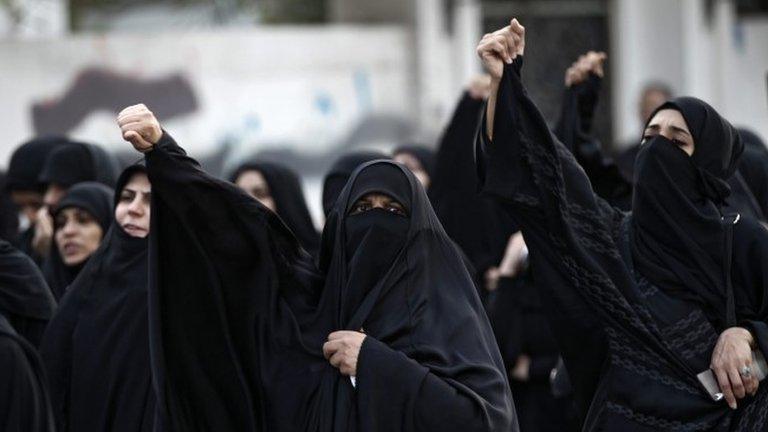
- Published15 October 2014
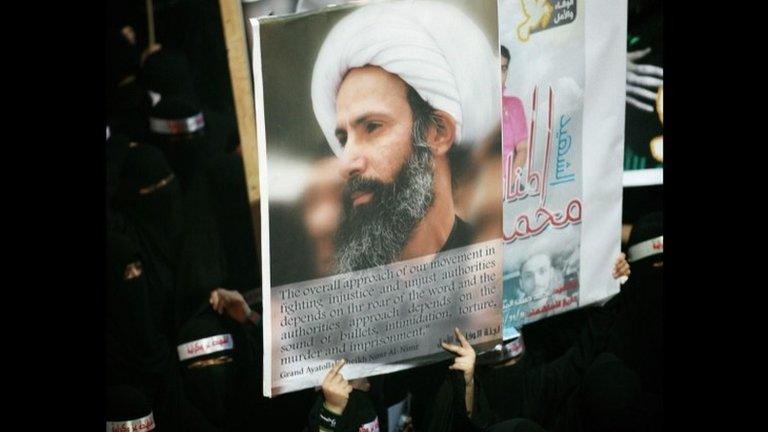
- Published4 January 2016
